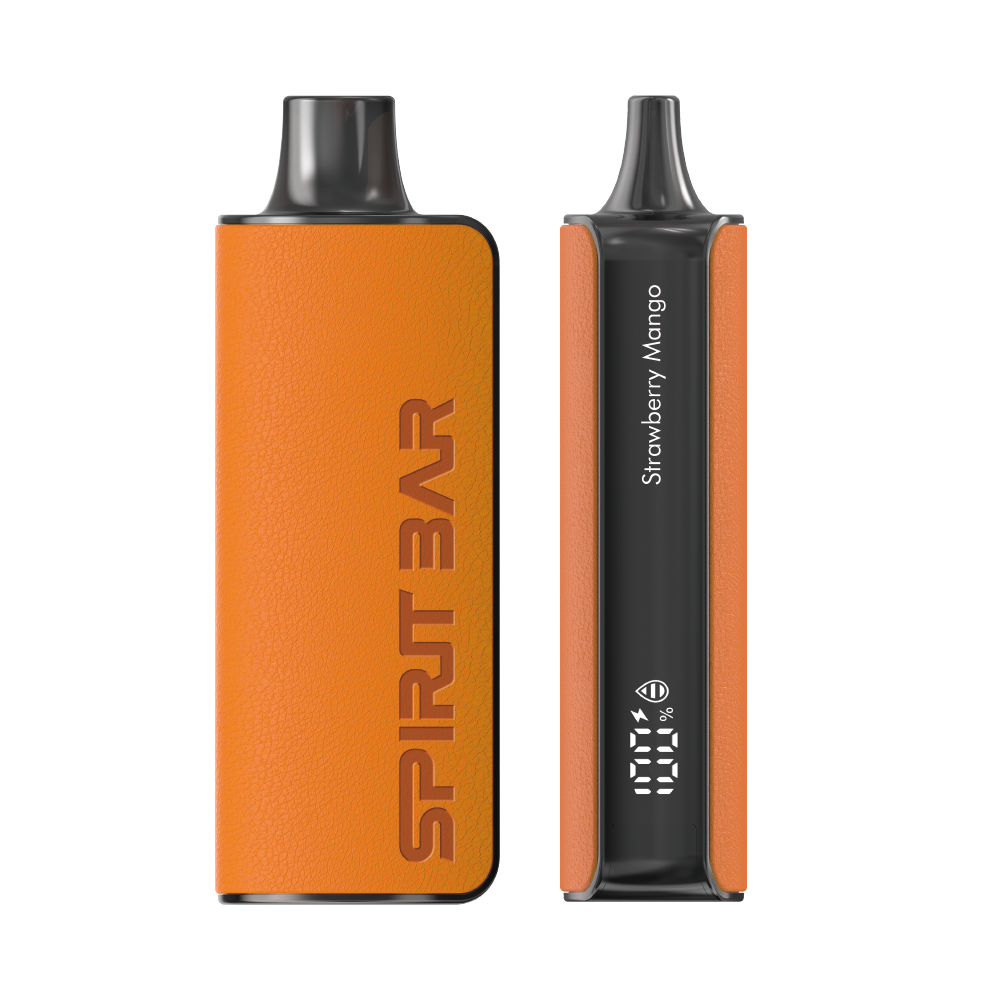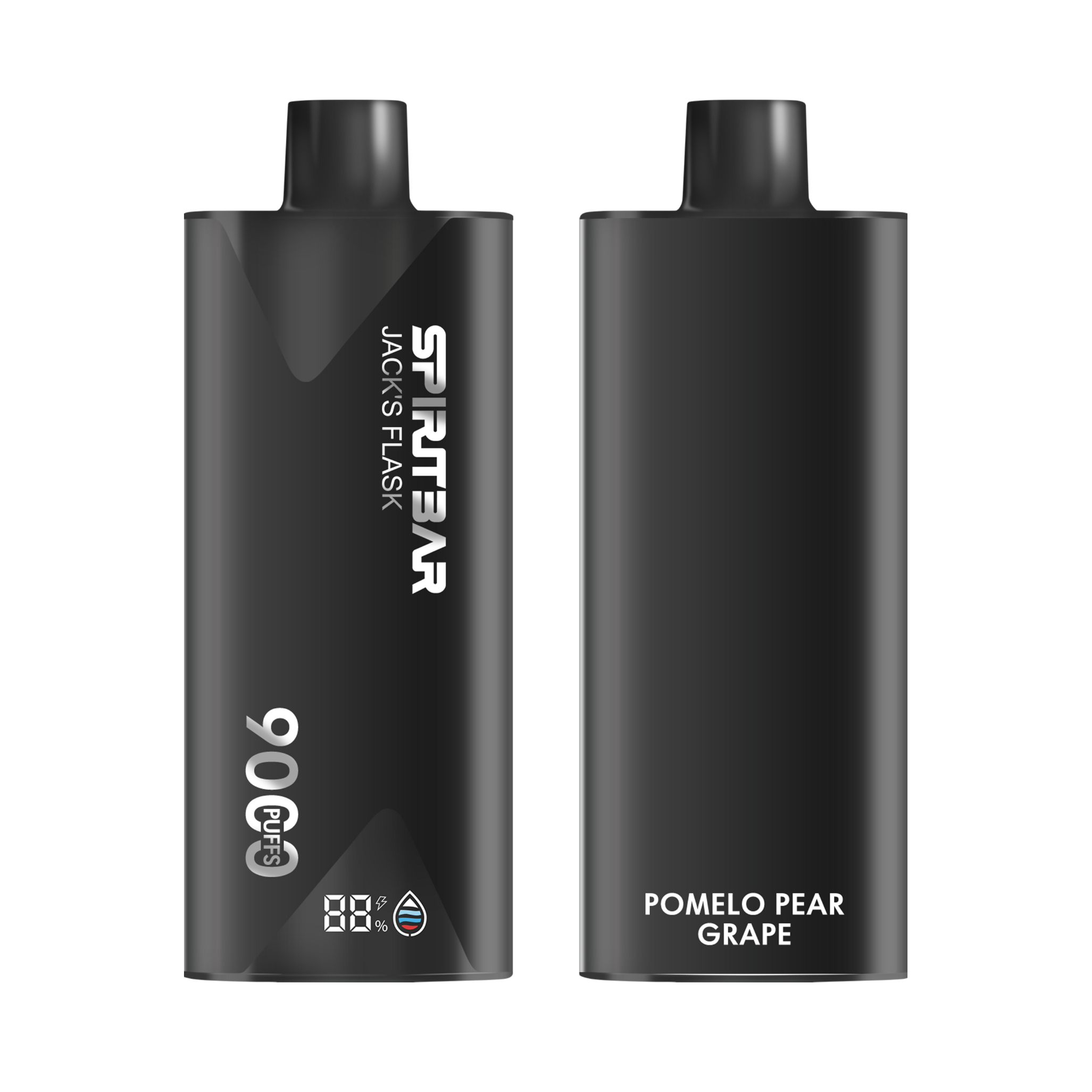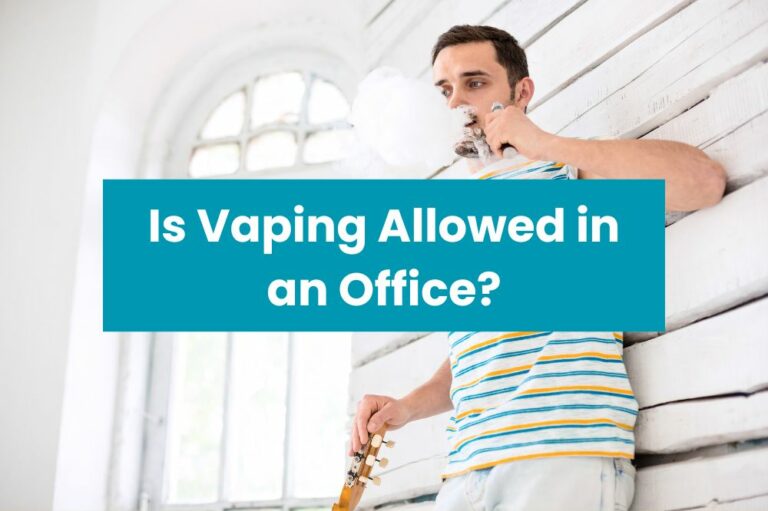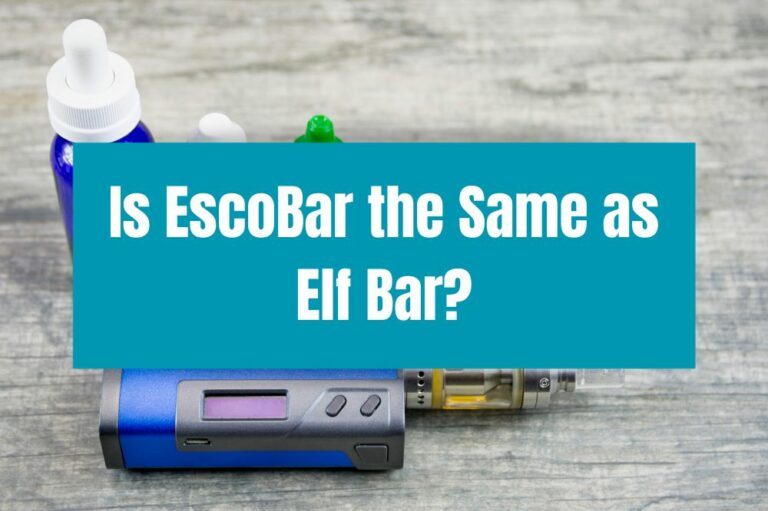Is a Vape Illegal in Australia?
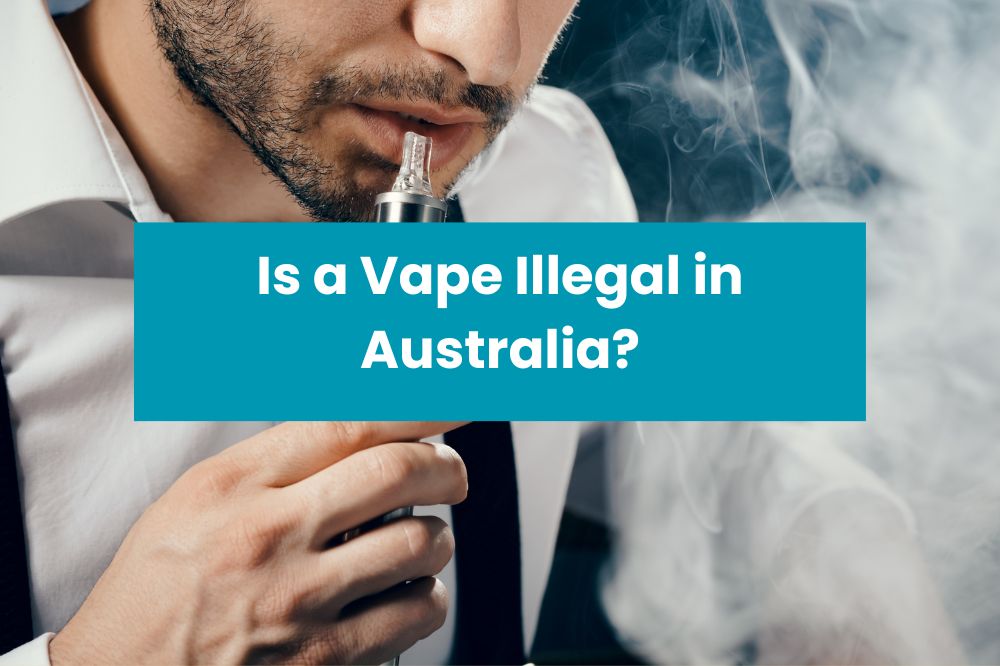
Are you wondering if it’s illegal to vape in Australia? The answer is not straightforward. Vaping laws in Australia are complex and vary by state and territory. While vaping is not illegal in all parts of Australia, there are restrictions on the sale, possession, and use of vaping products in some areas.
In some states, it is legal to buy and use vaping products that contain 0% nicotine. However, the sale of any type of vape, even those that do not contain nicotine, is illegal in Western Australia. In other areas, such as New South Wales, it is legal to buy and use nicotine-free vaping products, but it is illegal to possess or use vaping products that contain nicotine without a prescription.
If you are caught using or possessing a vape illegally, you could face fines or even imprisonment. It’s important to understand the laws in your area and follow them to avoid any legal trouble. In the rest of this article, we will explore the vaping laws in more detail, so you can understand what is legal and what is not when it comes to vaping in Australia.
Understanding Vaping
If you are new to vaping, it is important to understand what it is and how it works. Vaping involves inhaling vapor produced by an electronic device that heats a liquid, also known as e-liquid or vape juice. This liquid usually contains nicotine, which is addictive, but can also be nicotine-free.
Vaping devices come in different shapes and sizes, but they all work in a similar way. The device has a battery, a heating element, and a tank or cartridge that holds the e-liquid. When you inhale, the heating element vaporizes the liquid, which then enters your lungs.
SPIRITBAR Katana BP10000
- Slender, leather-textured body reminiscent of a katana handle for an authentic samurai feel
- Unique samurai-inspired e-liquid flavor - fruity yet not too sweet, with a luxurious, elegant aroma
- Powerful 650mAh rechargeable battery for extended vaping time
- Large 18ml e-liquid capacity and 10,000 puff capacity
- Advanced mesh coil and e-liquid & power display screens for optimal vaping experience
The special juice captures the essence of the samurai spirit with its rich, smoothly pulsating flavor that brings new satisfaction with every puff. The device's slender, leather-textured design evokes the grip of a samurai's katana, making this product a perfect choice for beginner vapors.
While some people use vaping as a way to quit smoking, it is important to note that vaping is not risk-free. The long-term health effects of vaping are not yet fully understood, and some studies suggest that vaping may be harmful to your health.
In Australia, the laws around vaping are strict. It is illegal to sell nicotine-containing e-liquid unless you have a prescription. However, it is legal to use and sell nicotine-free e-liquid. Some states have additional restrictions on vaping, so it is important to check the laws in your area.
Overall, if you are considering vaping, it is important to do your research and understand the potential risks and benefits. Speak to your doctor or a qualified healthcare professional for advice on whether vaping is right for you.
Current Australian Laws on Vaping
If you are wondering whether vaping is illegal in Australia, the answer is no. However, there are strict laws regulating the use, sale, and possession of vaping products in the country.
The Australian government has banned the sale of e-cigarettes and e-liquids that contain nicotine. You can only purchase nicotine e-cigarettes and e-liquids with a prescription from a registered medical practitioner. This means that you cannot buy nicotine-containing e-cigarettes or e-liquids from Australian retailers or overseas websites without a valid prescription.
The Therapeutic Goods Administration (TGA) regulates nicotine-containing e-cigarettes and e-liquids as therapeutic goods. This means that they are subject to strict safety and quality standards. The TGA has approved a limited number of nicotine e-cigarettes and e-liquids for use as smoking cessation aids.
SPIRITBAR Jack’s Flask 9000 Puffs
- Stylish pirate flask-shaped body providing an exciting vaping experience
- Delivering up to 9000 puffs per device
- 20ml e-liquid capacity with 50mg nicotine strength for satisfying throat hit
- Specialized pirate-themed e-juice flavors for rich, swirling taste
- Premium mesh coil optimizes flavor profile for maximum vaping enjoyment
This disposable vape captures the daring spirit of the high seas with its flask styling and signature pirate e-juice flavors. The extraordinary battery life provides 9000 indulgent puffs for extended vaping pleasure. Live boldly and freely with the Jack's Flask - a legendary vaping experience fit for a pirate's adventures.
On the other hand, non-nicotine e-cigarettes and e-liquids are legal to buy, sell, and possess in Australia. However, some states and territories have their own laws regulating the use of e-cigarettes in public places.
It is also worth noting that the importation of nicotine e-cigarettes and e-liquids without a prescription is illegal in Australia. From 1 October 2021, it became illegal to buy nicotine vaping products from overseas websites without a doctor’s prescription. If you want to import nicotine e-cigarettes or e-liquids, you must have a valid prescription from a registered medical practitioner.
In summary, vaping is not illegal in Australia, but there are strict laws regulating the sale, use, and possession of vaping products. If you want to use nicotine-containing e-cigarettes or e-liquids, you need a prescription from a registered medical practitioner. Non-nicotine e-cigarettes and e-liquids are legal to buy, sell, and possess in Australia, but some states and territories have their own laws regulating their use in public places.
Differences in State Laws
If you are wondering whether vaping is legal in Australia, the answer is not straightforward. While vaping products that contain 0% nicotine are legal in most states and territories, the laws surrounding vaping with nicotine vary significantly from state to state. Here is a breakdown of the vaping laws in each state and territory:
New South Wales
In New South Wales, it is legal to use and possess e-cigarettes and vaping devices that contain nicotine. However, it is illegal to sell nicotine-containing e-cigarettes and vaping products unless they are approved by the Therapeutic Goods Administration (TGA) for use as a smoking cessation aid.
Victoria
In Victoria, it is legal to use and possess e-cigarettes and vaping devices that contain nicotine. However, it is illegal to sell nicotine-containing e-cigarettes and vaping products unless they are approved by the TGA for use as a smoking cessation aid.
Queensland
In Queensland, it is legal to use and possess e-cigarettes and vaping devices that contain nicotine. However, it is illegal to sell nicotine-containing e-cigarettes and vaping products unless they are approved by the TGA for use as a smoking cessation aid.
Western Australia
In Western Australia, it is illegal to sell any type of e-cigarette or vaping product, including those that contain 0% nicotine. This means that it is illegal to buy or sell vaping products in Western Australia.
South Australia
In South Australia, it is legal to use and possess e-cigarettes and vaping devices that contain nicotine. However, it is illegal to sell nicotine-containing e-cigarettes and vaping products unless they are approved by the TGA for use as a smoking cessation aid.
Tasmania
In Tasmania, it is legal to use and possess e-cigarettes and vaping devices that contain nicotine. However, it is illegal to sell nicotine-containing e-cigarettes and vaping products unless they are approved by the TGA for use as a smoking cessation aid.
Northern Territory
In the Northern Territory, it is legal to use and possess e-cigarettes and vaping devices that contain nicotine. However, it is illegal to sell nicotine-containing e-cigarettes and vaping products unless they are approved by the TGA for use as a smoking cessation aid.
SPIRITBAR Katana BP10000
- Slender, leather-textured body reminiscent of a katana handle for an authentic samurai feel
- Unique samurai-inspired e-liquid flavor - fruity yet not too sweet, with a luxurious, elegant aroma
- Powerful 650mAh rechargeable battery for extended vaping time
- Large 18ml e-liquid capacity and 10,000 puff capacity
- Advanced mesh coil and e-liquid & power display screens for optimal vaping experience
The special juice captures the essence of the samurai spirit with its rich, smoothly pulsating flavor that brings new satisfaction with every puff. The device's slender, leather-textured design evokes the grip of a samurai's katana, making this product a perfect choice for beginner vapors.
Australian Capital Territory
In the Australian Capital Territory, it is legal to use and possess e-cigarettes and vaping devices that contain nicotine. However, it is illegal to sell nicotine-containing e-cigarettes and vaping products unless they are approved by the TGA for use as a smoking cessation aid.
It is important to note that the laws surrounding vaping are subject to change, and it is your responsibility to stay up to date with the latest regulations in your state or territory. If you are unsure about the legality of vaping in your area, it is always best to seek legal advice or contact your local authorities for clarification.
Health Risks and Public Concerns
Vaping has become a hot topic in Australia due to its potential health risks and public concerns. According to a major government report, the growing use of e-cigarettes poses a “serious public health risk” and threatens to introduce a new generation to smoking. The report found that vaping can be harmful, particularly for non-smokers and young people. Here are some of the health risks associated with vaping:
- Lung damage: Vaping can cause lung damage, which can lead to respiratory problems, such as coughing, wheezing, and shortness of breath. It can also cause inflammation in the lungs, which can lead to serious health problems such as pneumonia and bronchitis.
- Nicotine addiction: Vaping products contain nicotine, which is highly addictive. Nicotine addiction can lead to a range of health problems, including increased heart rate and blood pressure, and an increased risk of heart disease.
- Toxic chemicals: Vaping products contain a range of toxic chemicals, including formaldehyde, acetaldehyde, and acrolein. These chemicals can cause a range of health problems, including cancer, respiratory problems, and heart disease.
- E-cigarette or vaping product use-associated lung injury (EVALI): EVALI is a lung injury associated with the use of e-cigarette or vaping products. Symptoms can include coughing, shortness of breath, chest pain, fever, and fatigue. In severe cases, it can lead to hospitalization and even death.
Due to these health risks, many public health experts and organizations have expressed concern about the use of e-cigarettes and vaping products. In fact, the Australian government has recently announced a ban on recreational vaping in a major public health move. The ban aims to protect young people, many of whom haven’t smoked before, from the potential harms of vaping.
In conclusion, vaping is a serious public health risk in Australia. It can cause a range of health problems, including lung damage, nicotine addiction, toxic chemical exposure, and EVALI. As such, it is important to be aware of the potential risks associated with vaping and to take steps to protect yourself and others from harm.
Vaping vs Traditional Smoking
If you’re considering switching to vaping, you may wonder how it compares to traditional smoking. Here are some things to keep in mind:
Health Effects
Both vaping and smoking involve inhaling chemicals into your lungs, but vaping is generally considered to be less harmful than smoking. This is because vaping doesn’t involve burning tobacco, which releases a host of toxic chemicals. However, vaping still involves inhaling chemicals, and the long-term health effects of vaping are not yet fully understood.
Nicotine Content
Cigarettes contain nicotine, which is highly addictive. Vaping liquids can also contain nicotine, but not all of them do. If you’re trying to quit smoking, you may want to start with a vaping liquid that contains nicotine and gradually reduce the nicotine content over time.
Cost
Vaping can be more expensive than smoking in the short term because you need to buy a vaping device and liquids. However, over time, vaping can be cheaper than smoking because the liquids last longer than a pack of cigarettes.
Convenience
Smoking is generally more convenient than vaping because you don’t need to charge a cigarette or refill it with liquid. However, vaping devices are becoming more user-friendly and convenient, so this may not be as big of a factor as it once was.
Overall, vaping is a viable alternative to smoking, but it’s important to consider the potential health effects and costs before making the switch.
Regulations on Vape Sales
If you are wondering about the legality of vaping in Australia, it’s important to understand the regulations on vape sales. As of October 1, 2021, it is illegal to buy nicotine vaping products from overseas websites without a doctor’s prescription. This means that you must have a valid doctor’s prescription to legally purchase a nicotine vape in Australia.
Additionally, it is already illegal to sell vapes to under 18-year-olds, and convenience stores and online retailers have been caught flouting these regulations by falsely selling nicotine-containing products as non-nicotine products. The Australian government has cracked down on this issue, and public health experts have welcomed the new laws that underpin the ban on non-therapeutic and single-use vapes.
If you have a valid prescription, you can get a nicotine vape in two ways: go to a pharmacy to have your prescription filled or import your nicotine product from overseas. It’s important to note that importing nicotine products from overseas is still legal, but only if you have a valid prescription.
It’s also worth noting that each state in Australia has its own regulations on vaping. For example, in Victoria, it is illegal to use e-cigarettes in smoke-free areas, and in Western Australia, the sale and use of e-cigarettes containing nicotine is prohibited. Therefore, it’s important to familiarize yourself with the specific regulations in your state to avoid any legal issues.
Overall, while vaping is not illegal in Australia, it is heavily regulated, and it’s important to follow the regulations to avoid any legal issues.
Future of Vaping in Australia
As of October 2023, vaping is illegal in Australia except for those with a prescription from a doctor. The Australian government has implemented strict laws to combat the growing use of vapes among young people.
The future of vaping in Australia is uncertain, but it is likely that the government will continue to enforce strict laws and regulations. In recent years, there have been several changes to vaping regulations in Australia, including a ban on the importation of nicotine and non-nicotine vaping products except to pharmacies.
The government has also announced a $234 million package designed to curb vaping among young people, which includes measures such as minimum quality standards and a crackdown on the public prevalence of vapes.
While some people argue that vaping is a safer alternative to smoking, the Australian government remains unconvinced. According to the Alcohol and Drug Foundation, there is still a lack of evidence about the long-term effects of vaping on health.
If you are a smoker looking to quit, it is important to speak with your doctor about the best options for you. While vaping may seem like a convenient and easy way to quit smoking, it is important to remember that it is illegal in Australia without a prescription. There are other options available, such as nicotine replacement therapy, which can be prescribed by a doctor.
Overall, the future of vaping in Australia remains uncertain. It is important to stay informed about any changes to the law and to speak with your doctor about the best options for quitting smoking.

